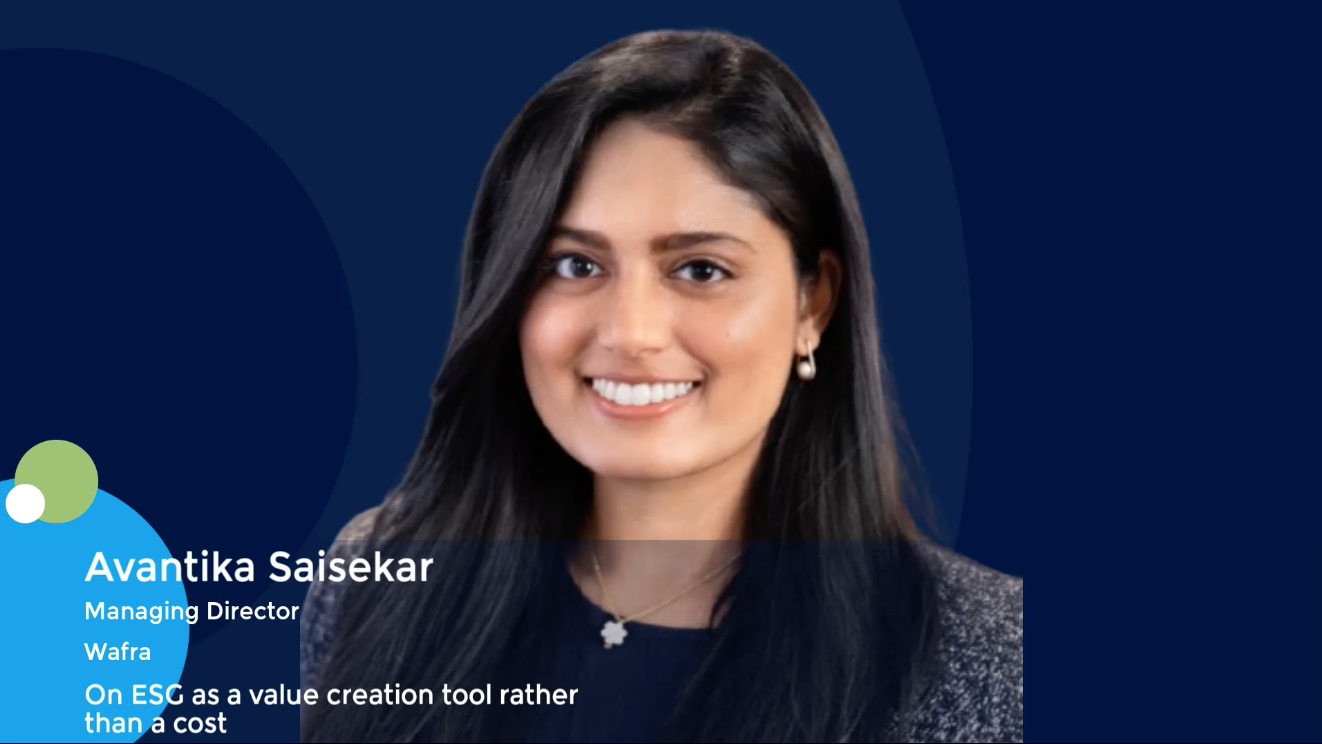The Evolving Role of ESG: A Fireside Chat with Avantika Saisekar
In a thought-provoking fireside chat hosted by Giovanni Amodeo, Avantika Saisekar, Managing Director at Wafra, shared her insights on the transformative role of Environmental, Social, and Governance (ESG) criteria in investment strategies. Rather than being perceived merely as a cost, Avantika emphasized that ESG can create significant value for investors and companies alike. Here are the key highlights from their engaging conversation.
Avantika’s Background
Avantika Saisekar leads the Sustainable Investment Group at Wafra, a New York-based middle-market alternative investment firm. With a focus on integrating ESG factors into the investment process, her team assesses how these considerations can enhance valuation throughout the investment lifecycle. Avantika’s extensive experience in the field positions her as a key voice in the ongoing dialogue about sustainability in finance.
The Evolution of ESG Over Time
Avantika’s journey in ESG began in 2013 at Northern Trust Asset Management, a time when the concept was just beginning to gain traction. She observed a significant increase in client interest in ESG, particularly between 2016 and 2017, as firms began to successfully implement ESG-focused indices. However, she noted that the recent boom in ESG discussions has led to a critical shift towards a more realistic approach to sustainability. This evolution emphasizes genuine value creation over superficial claims, marking a maturation of the ESG landscape.
Public vs. Private Markets
The conversation also delved into the differing approaches to ESG in public and private markets. Avantika highlighted that private markets offer unique advantages, such as closer engagement with portfolio companies. This proximity allows for more in-depth ESG due diligence and a better understanding of financial materiality. She stressed the importance of integrating ESG risks into investment theses to drive value, cautioning that reporting should not overshadow the due diligence process.
Diverse Perspectives from Limited Partners (LPs)
Avantika discussed the varying definitions and expectations of ESG among different limited partners, including pension funds and endowments. She emphasized the necessity of aligning ESG goals with the overarching investment thesis while addressing the specific interests of each LP. This alignment is crucial for fostering trust and ensuring that ESG initiatives are genuinely integrated into investment strategies.
Political Climate and ESG Concerns
When asked about the potential implications of upcoming presidential elections on ESG initiatives, Avantika expressed a strong belief in the durability of a robust sustainability framework. She argued that sustainability should be viewed as a long-term investment consideration, one that transcends political cycles and is increasingly critical to market dynamics.
Learning from Global ESG Practices
Avantika pointed out that the U.S. currently lags behind Europe in terms of sustainability initiatives. She noted that European markets have established clearer frameworks for ESG, which serve as models for best practices. As the U.S. continues to evolve in its approach to ESG, she anticipates a gradual alignment with these European standards, fostering a more cohesive global perspective on sustainability.
Inspiration and Future Perspectives
When prompted about an inspiring figure in the ESG space, Avantika mentioned Gina McCarthy, the former head of the Environmental Protection Agency (EPA). She expressed a keen interest in understanding McCarthy’s insights on sustainability and regulatory structures, highlighting the importance of learning from experienced leaders in the field.
Conclusion
Avantika Saisekar’s insights into the role of ESG as a value creation tool underscore the importance of genuine integration of sustainability into investment strategies. As the market continues to evolve, a focus on long-term value and realistic approaches to ESG will be vital for success. The conversation serves as a reminder that ESG is not merely a trend but a fundamental shift in how investments are evaluated and executed, paving the way for a more sustainable future.
Key Timestamps
- 00:09 Introduction to ESG and Value Creation
- 01:14 The Evolution of ESG in Investment
- 03:47 Public vs. Private Market Approaches
- 06:22 Defining Value Creation in ESG
- 08:13 Standardization of ESG Metrics
- 09:39 Assessing Governance in Investment Firms
- 12:47 Collaboration with GP Managers
- 14:13 Market Trends and Manager Resistance
- 17:08 Impact of Climate Change on Asset Valuation
- 19:10 The Evolution of Due Diligence
- 20:14 Understanding LP Perspectives
- 21:06 ESG Reporting vs. Due Diligence
- 22:07 Political Influences on ESG
- 23:14 Global Perspectives on ESG Practices
- 24:40 Inspiring Figures in ESG
In conclusion, Avantika Saisekar’s reflections on ESG highlight its potential as a powerful tool for value creation, urging investors and firms to embrace a more integrated and realistic approach to sustainability. As the conversation around ESG continues to evolve, it is clear that the future of investment will increasingly hinge on the genuine incorporation of these critical factors.

